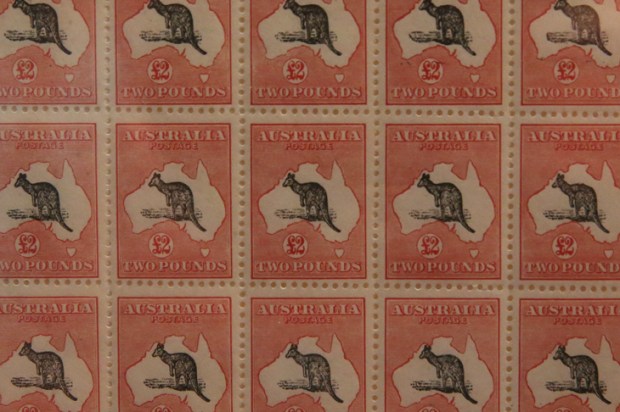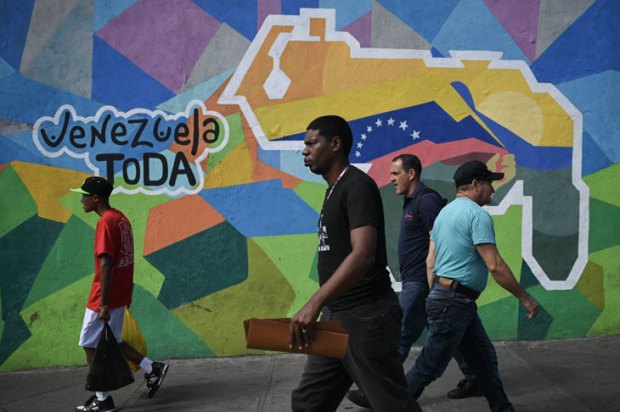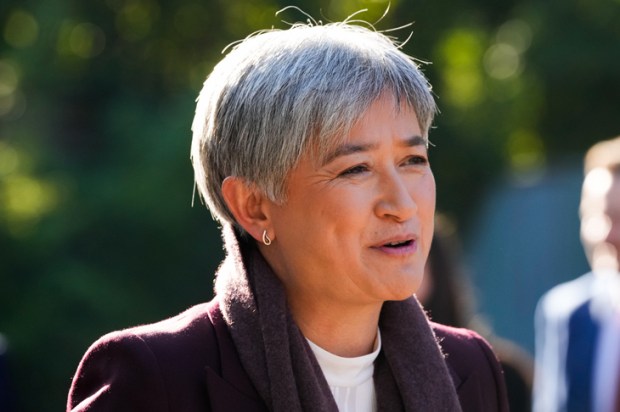From this distant land, the Paris Olympics were magnificent. Australia outperformed the other leading Olympic nations, ranking fourth in the medal tally despite our small population.
That result depended not only on our superb athletes and public investment, but also on one dedicated supporter, Mrs Gina Rinehart. Her commitment, through to the Brisbane Games, is reportedly around $100 million. Mrs Rinehart should be honoured as the truly great Australian she is.
Meanwhile, during the Olympiad, we were, above all, what was intended with federation: one people in one nation with one destiny.
With the miracle of modern communication and the professional work of Nine Television and Radio, Australians at home were able to participate, almost as if they were at the Games.
As our triumphant athletes received their gold medals, most Australians were no doubt moved to see what Labor leader Dr H.V. Evatt described as ‘probably the most beautiful flag in the world’ against the moving strains of ‘Advance Australia Fair’ uncluttered by some recent, unilaterally imposed addition.
In the meantime, Australians are surely grateful that merit is the sole criterion for membership in our Olympic team, and not race, nor colour, nor genuflection before any imposed, alien mantra such as diversity, equity and inclusion.
Participation and diligent preparation are accorded the honour they deserve. Success is determined without arbitrary handicap.The rewards are simple. A medal and a scroll as well as the honour that flows from representing the nation.
Above all, no performance at the Games is judged on, excluded, disadvantaged or advantaged because of race or colour. That principle was made sacred by the great Jesse Owens, the most successful athlete at the Berlin 1936 Games winning four gold medals. And as for those infected with the despicable vice of antisemitism, let them know and appreciate that just two Jewish athletes won more gold medals for Australia at Paris than most of the participating countries were awarded.
Except in their curious reliance on passports as conclusive of sex, the Games do well in separating sporting competition between women from that between men, which is made essential by nature.
Overall, the Paris opening ceremony was well done, drawing, one suspects, for the Seine opening on the dazzling use by the British of the Thames during the Diamond Jubilee of her Late Majesty Queen Elizabeth II.
The French rightly revel in the beauty of their capital, originally designed by Baron Haussmann to move imperial troops around quickly to quell revolution, a city preserved from destruction by Pétain’s early surrender to the Nazis. The claim by Nazi commander von Choltitz that he saved Paris from destruction by disobeying Hitler during the Liberation is unlikely. By that time he had lost the ability to obey. Considering his complete lack of the slightest reservation to advancing the genocide of the Jews, preventing the destruction of Paris was most unlikely to have ever been on his agenda.
The French authorities did an excellent job of providing first-class arenas and ensuring high-level security against the threat of terrorist attacks.
Where they failed was in delegating not only the choice of satire at the opening but also the nourishment, transport, ban on air-conditioning and even the beds of the athletes to those who have marched through our institutions with the sole purpose of seriously damaging and ultimately destroying Western civilisation. Delegating or leaving any authority whatsoever to them is unfortunately a common fault of far too many Western governments.
As for the opening ceremony, this should essentially be about the Olympics, showcasing the world’s athletes, and making a statement about the host. Among the most memorable opening ceremonies, London’s in 2012 stands out principally because of the British sense of humour. Few will forget the royal corgis wistfully looking up as James Bond and the Queen left the Palace by helicopter seemingly to make a parachute jump into the Olympic Stadium, or Mr Bean’s chaotic participation in the performance of Chariots of Fire.
When we think of the Games, let us be forever grateful to the French aristocrat, Pierre de Coubertin, truly the father of the modern Olympics.
Through Thomas Arnold at the Rugby School, he became impressed by the English public schools, which lived under the motto ‘a healthy mind in a healthy body’, so much so that he worked to revive the ancient Greek Olympic games.
This was, in many ways, the beginning of sport becoming a central institution of Western civilisation, something realised in Australia long before most countries.
Because they alternate, Australian athletes will usually link participation in the Olympic Games with the Commonwealth Games. Sometimes disparaged by commentators, the Commonwealth is an expanding organisation with a number of countries having expressed an interest in joining. Although being formerly a British colony is a normal requirement, this has been waived in exceptional cases. In addition, the historical requirement covers a large number of potential memebrs.
Although he proposed in his last election that Victoria host the 2026 Games, former Premier Daniel Andrews cancelled them reportedly on eight hours’ notice because of a claimed cost overrun, which the Games executive described as a ‘gross exaggeration’. A new host has not yet been confirmed.
Although it was Mr Andrew’s action, it seriously reflects on Australia’s reputation.
To restore Australia’s honour, it would be appropriate to hold them across Australia.Mrs Rinehart has already used her influence in relation to achieving this.
Peter V’landys, the well-known Australian horse racing and rugby league administrator who brought the first King Charles III stakes to Australia and rugby league to America, no doubt could also play a role in restoring the 2026 Commonwealth Games to Australia.
Got something to add? Join the discussion and comment below.
You might disagree with half of it, but you’ll enjoy reading all of it. Try your first month for free, then just $2 a week for the remainder of your first year.













